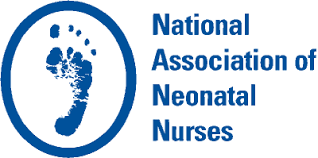Nurses have enormous impact on lives and in ways they can probably never imagine. Although neonatal nurses care for newborns and infants, their lasting impact is often remembered over decades.
Today is National Neonatal Nurses Day and the end of National Neonatal Nurses Week, and is a tribute to the ways these nurses change the lives of the tiniest patients. But it’s not just the babies these nurses save—the families of those babies never forget the nurses who cared for their children when they were at their most vulnerable.
If you’re a neonatal nurse, today’s a good day to reflect on how your efforts have a ripple effect. As you care for your patients, think of all the families you have worked with and helped over your career. Then think of all the people who loved those babies as that child grew to a toddler, teenager, or adult and went out into the world.
If that’s an emotional thought, that’s the reason why neonatal nurses are so passionate about and committed to the sometimes joyous sometimes heartbreaking work they do. They care for the newborns who need medical care for a range of medical issues. Their life-saving work is generally done in neonatal intensive care units (NICU), but they may also work in varied level nurseries. Some of these nurses will also make home visits and work in the community to care for sick infants. The infants can range from the tiniest premature baby to a full-term baby born with a critical illness.
If you are interested in a career in this nursing specialty, the National Association of Neonatal Nurses is an excellent resource. Nurses can work as a registered nurse or as a neonatal nurse practitioner. Your educational path will include a master’s degree and potentially a PhD if you want to work as a neonatal nurse practitioner, while a bachelor’s if often sufficient as a registered nurse level. Responsibilities increase between the registered nurse and nurse practitioner levels, as do salary rates.
Neonatal nurses are expected to have a high level of technical competency, and they must remain up-to-date on the constant advances in the field. Certification, as with any nursing field, is always recommended. Certification gives you the advantage of keeping your skills and your knowledge current. The American Assocation of Critical Care Nurses offers three separate certifications for neonatal nurses: CCRN (Neonatal), Acute/Critical Care Nursing; CCRN-K (Neonatal) Acute/Critical Care Knowledge Professional; ACCNS-N (Neonatal), CNS Wellness through Acute Care. There’s no shortage of the ways you can continue your professional and academic path after you earn your degree.
Nurses in this specialty must also have a level of empathy and compassion to care for the tiny babies and the people who love them. You are, in essence, treating the entire family. Helping them navigate the scary ups and downs of daily life in the NICU isn’t easy and is sometimes distracting, but families look to neonatal nurses to guide them. The bond many nurses develop with the families they work with are often strong and lasting. Some of the biggest rewards are hearing back from families years later of the positive effect you had in their lives.
- WOC Nurses Week Highlights Specialty - April 16, 2024
- Honoring Radiology Nurses Day on April 12 - April 12, 2024
- Travel Offers New Career Possibilities - April 8, 2024



